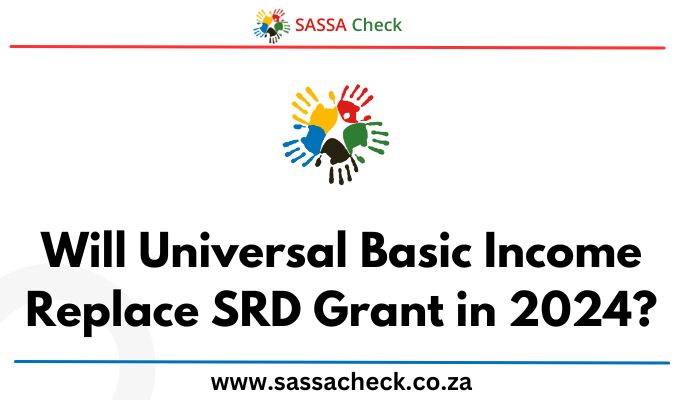Will Universal Basic Income Replace SRD Grant in 2024?
SASSA has introduced the Social Relief of Distress (SRD) grant during the peak of COVID-19. It was a great step by the government of South Africa at that time. Though the grant was supposed to end after one year, it is still in progress.

Now after the general elections of 2024, the new government African National Congress (ANC) is introducing a new grant called Universal Basic Income (UBI). This grant will replace the SRD grant soon. The UBI grant is for those who are between the ages of 18 to 59 and have low incomes.
What is Universal Basic Income (UBI)?
The new government party, the African National Congress (ANC) has decided to provide financial support to all the citizens and they have introduced the idea of a Universal Basic Income (UBI) grant.
Unlike the current SRD R370 grant, the new grant will be available for all types of people in South Africa without any strict eligibility criteria.
We have seen a lot of criticism on the Social Relief of Distress (SRD) grant due to low payment which is R370 per month. However, the new government has taken charge and now they want to create opportunities for everyone in the country.
Key Benefits of Universal Basic Income (UBI)
Here are seven key benefits of the Universal Basic Income (UBI) grant:
- Financial Security: UBI provides a consistent source of income, ensuring that individuals have a financial safety net to cover basic living expenses.
- Low Ratio of Poverty: By offering a universal grant, UBI aims to lift people out of poverty and reduce economic inequality in society.
- Economic Stability: With more disposable income, citizens can spend more on goods and services, boosting the overall economy and promoting economic growth.
- Improved Mental Health: Financial stress is a significant contributor to mental health issues. UBI can alleviate this stress, leading to better mental health and well-being.
- Encourages Entrepreneurship: Having a guaranteed income can provide the financial security needed for individuals to pursue entrepreneurial ventures or further education without the fear of financial instability.
- Reduces Bureaucracy: UBI simplifies the welfare system by replacing multiple targeted assistance programs with a single universal payment, reducing administrative costs and complexity.
- Social Inclusion: UBI can help reduce the social stigma associated with receiving welfare benefits, promoting a sense of inclusion and dignity among recipients.
Is It Possible to Deliver Financial Grants to Every Citizen?
While it is not impossible to deliver a financial grant to every citizen, there are several significant challenges that the government will face after the issuance of the Universal Basic Income (UBI) grant:
- Funding and Budget Constraints: Securing the necessary funding to support UBI on a large scale is a major challenge. The government will need to find sustainable sources of revenue to cover the costs without causing excessive strain on the national budget.
- Inflation Risk: Introducing a universal financial grant could lead to inflation if the increased disposable income boosts demand for goods and services beyond what the economy can supply, potentially driving up prices.
- Administrative Logistics: Implementing a UBI program requires robust administrative systems to ensure accurate and efficient distribution of funds. This includes setting up reliable mechanisms for registration, verification, and payment disbursement.
- Economic Disincentives: There is a concern that UBI might reduce the incentive for people to work, especially for low-income jobs. This could lead to labor shortages in certain sectors and impact overall productivity.
- Social Equity Concerns: Ensuring that UBI reaches the intended beneficiaries without exacerbating existing inequalities is a complex task. There is a risk that some vulnerable groups may be overlooked or that the program may not adequately address the diverse needs of different segments of the population.
